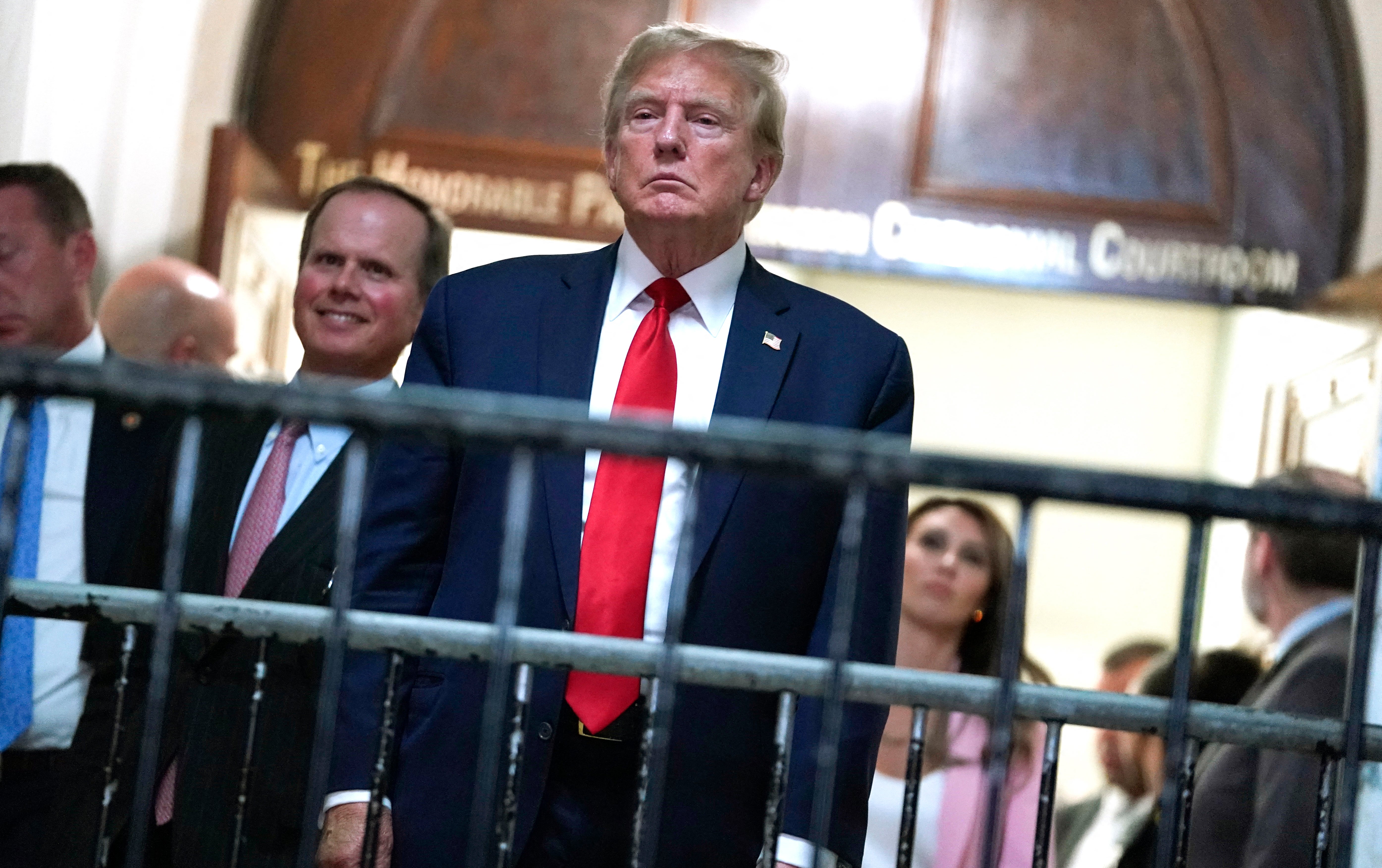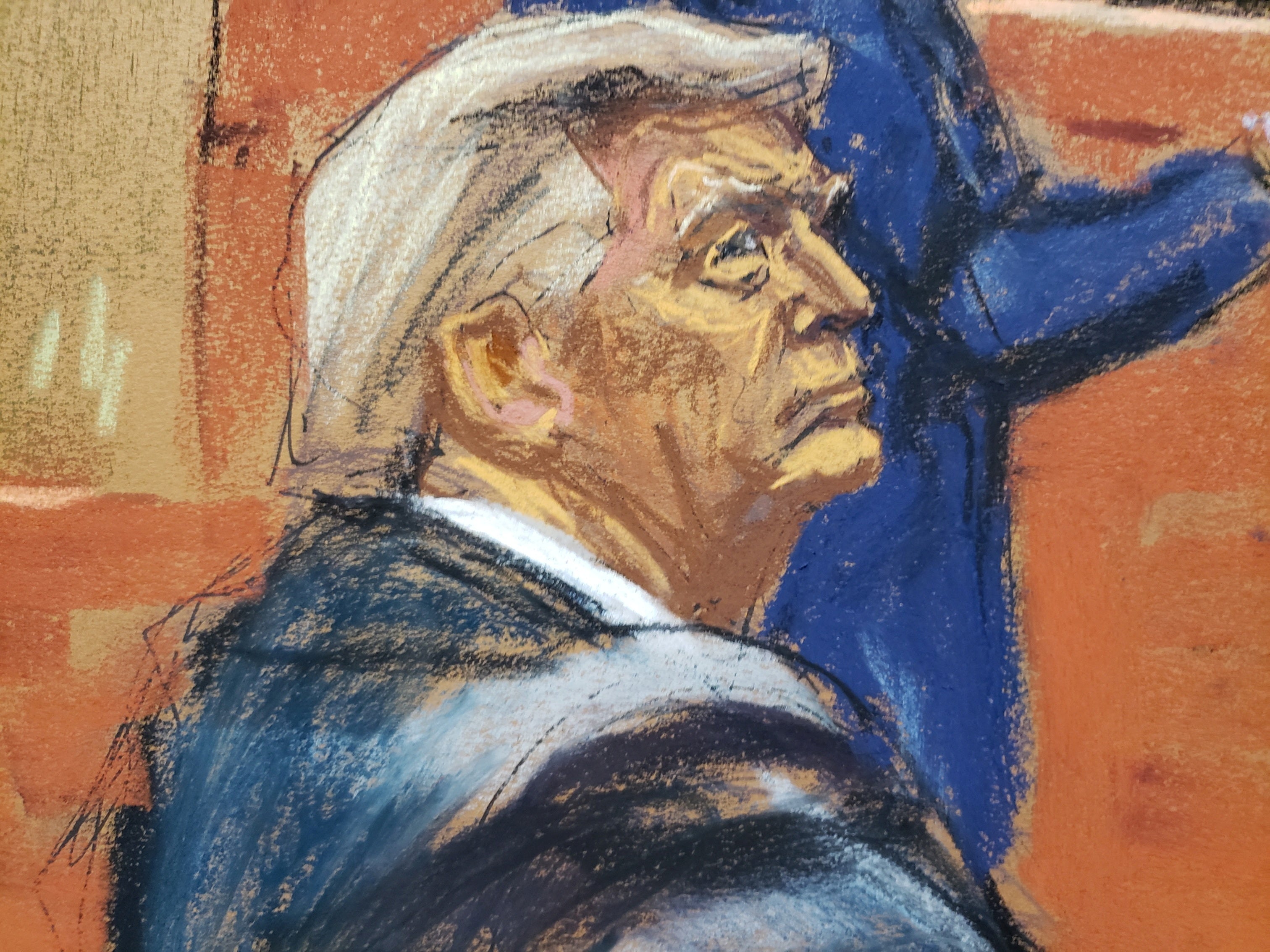Trump fraud trial judge jokes he’ll ‘miss’ the case as testimony ends
A ruling is expected by the end of January in a case that threatens the former president’s business empire
Your support helps us to tell the story
From reproductive rights to climate change to Big Tech, The Independent is on the ground when the story is developing. Whether it's investigating the financials of Elon Musk's pro-Trump PAC or producing our latest documentary, 'The A Word', which shines a light on the American women fighting for reproductive rights, we know how important it is to parse out the facts from the messaging.
At such a critical moment in US history, we need reporters on the ground. Your donation allows us to keep sending journalists to speak to both sides of the story.
The Independent is trusted by Americans across the entire political spectrum. And unlike many other quality news outlets, we choose not to lock Americans out of our reporting and analysis with paywalls. We believe quality journalism should be available to everyone, paid for by those who can afford it.
Your support makes all the difference.After 44 days across more than two months, witness testimony in a civil trial that could imperil Donald Trump’s real estate empire has concluded.
Final testimony on Wednesday morning closed a key chapter in a lawsuit that strikes at the heart of the former president’s persona as a successful businessman, a narrative that launched his presidential campaign and is now at the centre of a blockbuster lawsuit alleging a decade of fraud.
But the trial isn’t over just yet.
Lawyers for both parties will file their final briefs to the court by 5 January.
Closing arguments are scheduled for 11 January, and New York County Supreme Court Judge Arthur Engoron said he plans to issue a final ruling before the end of next month.
Mr Trump’s legal team has already appealed the judge’s damning pretrial ruling, and a lengthy appeals process following a final judgment is expected.
As he took his seat at the bench on Wednesday, Judge Engoron noted that the court will return in less than a month, “but in a strange way, I’m gonna miss this trial,” he said.
“It’s been an experience.”
The lawsuit from New York Attorney General Letitia James accuses Mr Trump, his two adults sons and their chief business associates of defrauding banks and other financial institutions by inflating his net worth and assets on annual statements of financial conditions — documents at the heart of the case — to secure favourable financing terms for some of his star properties.
Her lawsuit seeks to recover $250m (£203m) in ill-gotten gains and to strip the Trumps of doing business in the state, dealing a potentially crushing blow to the former president and the companies under his Trump Organization umbrella.
Judge Engoron’s pretrial judgment has already found Mr Trump and his co-defendants liable for fraud, leaving a trial to determine only what, if anything, they owe, and whether the attorney general succeeds on six other claims against them, including insurance fraud and conspiracy.
“While the judge already ruled in our favor and found that Donald Trump engaged in years of significant fraud and unjustly enriched himself and his family, this trial revealed the full extent of that fraud — and the defendants’ inability to disprove it,” Ms James said in a statement on Wednesday. “We look forward to presenting our closing argument on January 11.”

After nearly three months of Mr Trump’s in-court outbursts, high-profile witness testimony and a series of gag orders after the lower Manhattan courthouse was flooded with death threats, the trial came to a relatively anticlimactic ending on Wednesday after brief testimony from the second of two rebuttal witnesses introduced by the attorney general.
The former president was set to testify on Monday morning as a headlining defence witness, but he decided to drop out on Sunday night.
In all-caps screeds on his Truth Social platform, he repeated false statements about the case and attacks against the judge overseeing it, called the Black state attorney general suing him “racist”, and claimed that a defence witness who resumed his testimony on Tuesday already gave “strong” and “irrefutable” evidence to support him.
Witness statements from “world renowned experts, highly respected bank [and] insurance executives, real estate professionals, as well as others, both honest [and] credible” proved that he “clearly [and] unequivocally” did nothing wrong, the former president claimed.
On Tuesday, he appeared to reverse course, telling his supporters that he “wanted” to testify, but the judge “put a GAG ORDER on me, even when I testify, totally taking away my constitutional right to defend myself.”
The trial’s gag orders do not prevent him from defending himself; they prohibit all parties in the case from insulting or mentioning the court’s staff, which the former president violated twice, incurring $15,000 in fines.
After court officials revealed the scope of death threats and abuse targeting the judge and his principal law clerk, state appeals courts kept the gag orders in place, effectively ensuring that they would still be there by the time Mr Trump was on the witness stand a second time.

The final witness in the case, a Cornell University accounting professor introduced as a rebuttal witness by the attorney general’s office to refute arguments the defence, testified that Mr Trump — not his accountants or other third parties — was responsible for the accuracy of his financial statements.
His testimony, the last word from a witness in the case, distilled 11 weeks of fierce opposition from the defence into one hour of testy exchanges.
Attorneys for the defendants strongly objected to his appearance on the witness stand, repeatedly interrupted his testimony and sent a letter to the court that called him “unqualified” and inexperienced in accounting.
Eric Lewis wrote his doctoral dissertation on “An Examination of the use of Accounting Based Risk Measures for the Valuation of Closely Held Businesses” and he received a master’s degree in accounting.
His testimony directly contradicted a chief element of Mr Trump’s case: that the accounting firm Mazars USA, not the former president or his chief associates, were responsible for any issues with his statements of financial condition.
After frustrations from the attorney general’s team over the defence’s ongoing objections, Mr Trump’s attorney Christopher Kise — whose client repeatedly held makeshift press conferences in the courtroom hallways and insulted the judge while he was on the witness stand himself — told a state attorney that “petulant outbursts don’t really play well in a courtroom.”
Join our commenting forum
Join thought-provoking conversations, follow other Independent readers and see their replies
0Comments